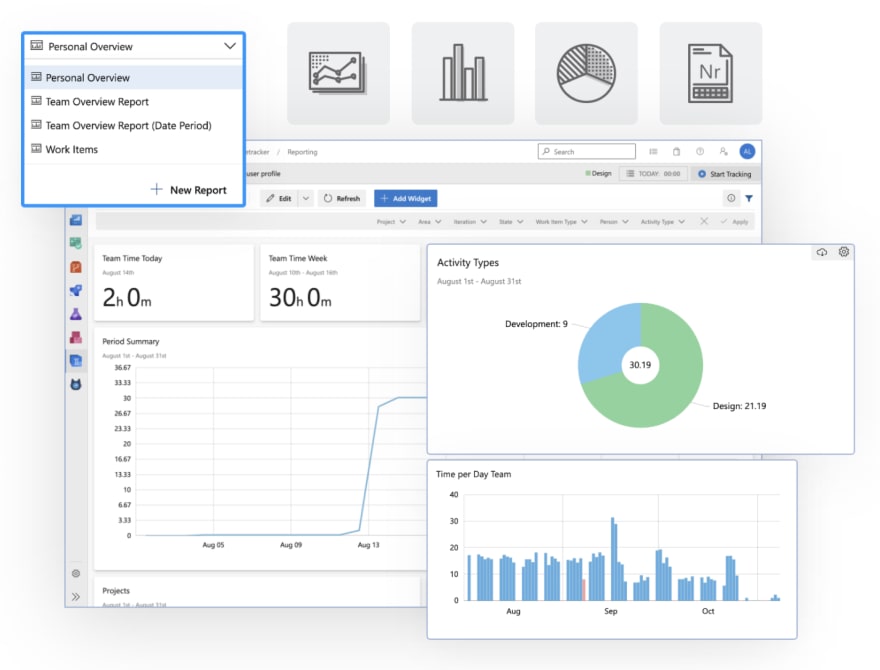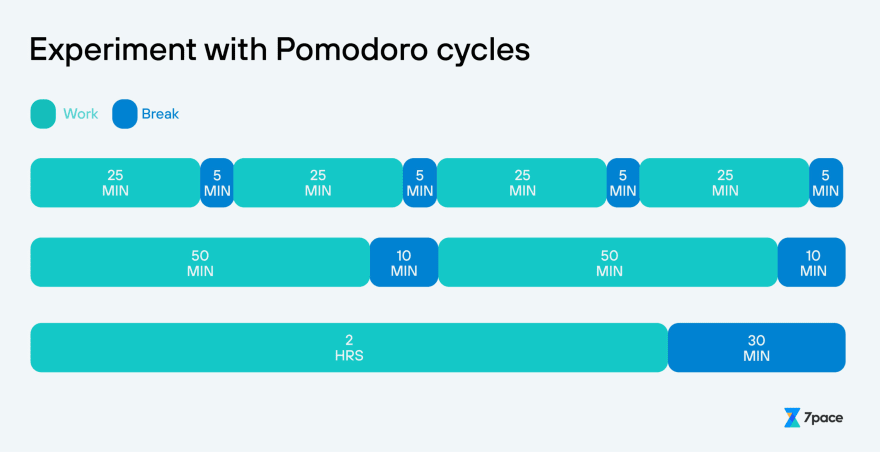We’ve all been there.
You arrive at work, feeling good and ready to tackle a monster list of tasks.
You’ve planned out pages of items to get done.
You get your coffee, you settle in, and you get to work.
But by lunch time, something has become clear: Even though you’re feeling productive and on top of your game, this long to-do list isn’t getting done.
Don’t blame yourself — it’s human nature to overestimate how much work we can really get done. And for knowledge workers in particular, the amount of work we can really do in a day is typically far less than we would think.
There’s a lot of debate about how much work people are actually capable of doing in a day, but one thing is clear: Almost no one can work for eight straight hours. So how much work can you really get done? Let’s look at what science says.
How Many Productive Hours Can Knowledge Workers Actually Work?
There’s a much-quoted study that shows that knowledge workers are only productive for three hours per day. But is that really accurate?
Since every worker is different, and every job is different, there’s no single number of hours that represents a limit to how much work a person can do in one workday. Different people have different stamina, which is also heavily affected by the difficulty of the tasks at hand.
But most experts agree that it isn’t reasonable to expect anyone to work productively for eight hours straight, five days a week. Most studies point to an average amount of work for knowledge workers being anywhere from three to six hours in each eight-hour workday.
Software teams are likely to already know this, since sprint planning usually accounts for about four hours of work per team member per day.

So is this an excuse for knowledge workers like software developers to clock three hours at their desks and then call it a day?
You probably already know the answer to that.
Knowing our own natural limitations is a great way to fight back against the always-on-the-clock culture that dominates many of today’s workplaces. But it can also serve as a tool to become more productive — by knowing how many hours we can effectively work in a day, we can better prioritize and allocate those hours to tasks and projects that need to get done soonest.
How to Track How Much Time You Actually Work
In order to learn how to work smarter, you first need a baseline — you need to know how many hours you actually tend to spend working productively each day.
For that, you need a time tracker that can stay out of your way, tracking your time while you just get your work done. Even better if that time tracker can provide you with data about your work, so you can have more insight into your pace and productivity.
7pace Timetracker does both of those things.
Built for Azure DevOps and Github, 7pace Timetracker integrates seamlessly into your workflow and stays right where you need it: Out of your way. It can measure your work and track your progress on everything from entire projects to individual work items, which gives you a much clearer picture of exactly how many hours you spend being productive than many other traditional time tracking methods.

Using 7pace Timetracker will help you determine how much productive time you’re spending at your desk each day, and from there, you can determine whether you want to adopt new habits to get more out of your work hours.
How to Work Smarter — Not Longer
Knowing how many hours you spend being productive currently is just a starting point. But we already know that if you’re being productive for anywhere between three and six hours per day, you probably won’t be able to increase that number much, if at all. So if you want to get the most out of your productive time at work, you’ll need to work smarter, not longer.
Have Realistic Expectations
Step one: Don’t set your expectations sky-high. Yes, most knowledge workers can probably pick up new skills that will help them boost their productivity. But the whole point we’re trying to make here is that knowledge work is hard, and humans have natural limits to how much of it they can do in a day. Try to set realistic goals for boosting your productivity at work.
Learn to Say No
One common productivity killer? Saying yes to every ask and task that comes across your desk.
A big part of working smarter is prioritizing your time to just do the most important and high-priority work you can. That means saying no to tasks that aren’t as pressing as the ones already on your to-do list.
Take More Breaks
It may sound counter-productive, but it’s backed up by science: Knowledge workers often get more work done when they take more frequent breaks.
The reason for this is that knowledge work is hard. It’s draining. It takes a ton of mental stamina. If you can strategically step away throughout the day to give your brain a break from the heavy lifting, you’ll be able to do more — for longer. It’s like running a long distance. You’ll be able to go further if you keep a reasonable pace and rest when needed, rather than trying to sprint the entire time.
But Don’t Overdo Your Breaks
Be careful not to have too much of a good thing. Taking periodic breaks throughout your work day will help you boost your productivity, but taking too many breaks, or stepping away for too long at a time is a surefire way to make sure you never get anything done.
To find a break pattern that works for you, try experimenting with Pomodoro cycles. The standard is 25 minutes of work followed by a 5 minute break, repeated throughout the day. If a 5-minute break seems too short, or if 25 minutes isn’t enough time to get into your flow, experiment with longer cycles — say, 2 hours of deep work followed by a half-hour break. Follow that cycle for an eight-hour work day, and you’ll have spent six total hours doing productive deep work.

Make Your Deadlines Realistic
Another important part of working smarter is setting yourself up for success, and that means not setting deadlines you can’t meet. It can be tempting to set a short deadline to force yourself to get more work done in a short period of time, but this is a quick way to burn yourself out, not increase your productivity.
Ask for Accountability
When setting goals at work, it can always help to work together with a team member toward bettering yourself. Ask someone if they can help out by holding you accountable to work toward your productivity goals. Better yet, see if you have a teammate who wants to set similar goals, so you can hold each other accountable.
Take Care of Your Body
And finally, an important part of maximizing your productivity is making sure you take care of yourself, both at work and at home. Get enough sleep each night. Eat healthy meals regularly throughout the day. Drink lots of water. If you feel stressed or burnt out, that’s a sign that you’re pushing too hard, and your goals may be beyond your natural limits. Listen to that, if it happens.
How Much Work Can You Really Get Done?
By following these tips, you should be on the path toward maximizing your own time spent at work each day. But remember that productivity is deeply individual, and to recognize that all people have different limits to how much they can really get done.
7pace Timetracker is the only integrated, professional time management solution for teams using Azure DevOps and GitHub.




Top comments (0)